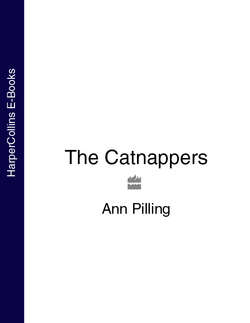Читать книгу The Catnappers - Ann Pilling - Страница 7
Оглавление
Chapter Two
The excitement happened just a few weeks before Christmas. Miss McGee was busy, mixing her pudding. She normally made it on Bonfire Night so that it could sit for a good long time on the cool pantry shelf, and develop all its lovely flavours of fruit and spice and best brandy, and be just perfect for Christmas Day. But she had been ill in bed with a nasty cold so the pudding making had been delayed.
Kitty offered to make it for her. “I could do it, McGee,” she said one morning, “if you will give me exact instructions.”
But Miss McGee, who was still feeling rather ill, called out from her bedroom, “Oh no, thank you. When it comes to cooking, you’re hopeless.”
Poor Kitty crept away, feeling very crushed, and went to sit in her front room, quietly, among her plants, with Nicholas on her knee. “Dear McGee must be feeling very bad indeed,” she confided, “or I don’t think she would have said such a thing to her oldest friend, do you?” And while Nicholas purred, in an understanding kind of way (the old ladies told him all their troubles, both separately and together), a little tear trickled slowly down her cheek.
Kitty, who was not very good at forgetting hurtful things, such as being told she was “hopeless”, was unhappy for the whole of that day, and into the next and the next. The unhappiness was like very bad toothache, just gnawing and gnawing, and it only went away when something unusual suddenly caught her eye, down in the square. It was a big, silvery furniture van with Friendly Ghost Removals painted on the side in bold blue letters.
“McGee,” she called. “McGee, come quickly. Somebody’s moving into Number 26.” In spite of her creaky little legs, Miss McGee came up the stairs quite fast, to look for herself. People never moved into Golden Square, they always moved out.
For example, just as they had got used to little Debbie Springer running in and out of their house, calling them her “special grannies” (even though she had a perfectly nice gran of her own, who lived by the sea at Blackpool), the flood happened, and the green mould, so that, almost overnight, Debbie and her mum had gone. Much as Kitty and Miss McGee liked Debbie, they were both nervous about going to the top of the Town Flats in that lift, so they didn’t see her any more. And all this was part of the reason that the two old ladies, who loved families and pets and, most of all, children, felt lonely.
They stood side by side at the window and peered down into the square where three men in brown overalls were carrying things into the house. Kitty removed her spectacles, to see better, and Miss McGee put hers on, for the same reason.
“There goes the ironing board,” Miss McGee cried. “And there goes the washing machine.”
“And there goes a bicycle … no, two bicycles,” said Kitty. “And they’re quite little ones.” She turned to her friend with shining eyes. “You don’t suppose a real family’s moving in, do you, McGee? Real people, after all those dentists and doctors? Might it be a real family at last, with real children?”
Miss McGee screwed her nose up, and her mouth and her eyes, till her face was one big scrunch. She didn’t want Kitty to be disappointed, in case it wasn’t a real family and she didn’t want to be disappointed herself. They both liked children. Kitty had once been a teacher, in the school that had closed down. She had been used to little boys and girls playing round her feet all day. Miss McGee had been a special nurse and had cared for sick children in hospital. “I wouldn’t like to say, Kitty,” she replied. “It could be some young people moving in. They might keep us awake all night, with their noisy parties.”
“Oh surely not,” said Kitty (though secretly, she rather liked parties), “not in Golden Square.”
The fetching and carrying went on for quite a long time, then there was a great slamming of doors. The driver whistled and soon the silvery van was moving away from the pavement. Just for an instant, the old ladies saw two grown-ups standing outside the door of Number 26, a man and a woman hand in hand. They were staring rather sadly at the disappearing removal van. Kitty and Miss McGee held their breath because the front door was still open; a handful of leftover autumn leaves was scurrying over the doormat.
“Where are the children?” whispered Kitty. “Perhaps they’re inside, unpacking their toys. Perhaps, if we wait, they’ll come out. They might even ride their bicycles round the square,” and she pressed her nose against the window pane.
“I don’t think so, dear,” muttered Miss McGee and she hid her own disappointment by going back to the pudding making, down in her kitchen. “There probably aren’t any children,” she added, under her breath.
